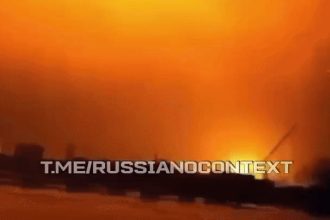Unlock the Editor’s Digest for free
Roula Khalaf, Editor of the FT, selects her favourite stories in this weekly newsletter.
Argentines will vote in presidential elections on Sunday, facing a deeply polarising choice between Sergio Massa, the economy minister presiding over the country’s worst crisis in two decades, and Javier Milei, a hard-right libertarian outsider who has claimed he may be the victim of voter fraud.
With annual inflation running at 142.7 per cent, four in 10 Argentines living in poverty and the peso plummeting against the dollar, the two candidates offer starkly different plans to solve the country’s problems. Polling suggests neither has won wholehearted support from crisis-hit Argentines ahead of the second round of voting.
Massa is a skilled political operator from the moderate wing of the centre-left populist Peronist movement, which has ruled Argentina for much of the past 40 years. He has pledged to build a unity government with opposition figures.
As a minister, Massa has relied on strict currency controls and money printing to finance spending, but he has promised to shift towards orthodox policy — while protecting the social safety net constructed by the Peronists.
Milei, a former television commentator known for his furious rants against Argentina’s political elite, says a “shock” is the solution. He has promised to take a “chainsaw” to the state to slash spending by up to 15 per cent of gross domestic product and replace the peso with the US dollar.

Milei has been endorsed by former centre-right president Mauricio Macri, and by Patricia Bullrich, the presidential candidate for Macri’s Juntos por el Cambio coalition, who was eliminated in the first round of voting in October.
Massa scored an unexpected victory in the first round, with 37 per cent of the vote against 30 per cent for Milei and 24 per cent for Bullrich.
On Thursday, Milei’s party, La Libertad Avanza, alleged in an electoral court that officials had perpetrated a “colossal fraud” against him in the first round, “considerably” altering the result. The document cited anonymous sources.
“We think the ruling party is showing very crude signs of desperation and we have no doubt that they are capable of resorting to any kind of stunt to hold on to power,” Milei said in a radio interview on Friday.
Peronist officials have accused Milei of trying to sow doubt about Argentina’s electoral system, which has not suffered major fraud cases since the country’s return to democracy in 1983.

The claims will raise tensions on Sunday in what is projected to be a closely fought run-off. Whoever wins more votes will take office on December 10.
Argentines are expected to cast far more blank ballots than usual, according to Guido Moscoso, manager at public opinion company Opinaia.
“Both of these candidates generate more rejection than support . . . and many political leaders [in the centre] have refused to back either candidate.”
In the last weeks of campaigning, as well as alleging fraud, Milei has sought to moderate his radical image. His final ad, released on Thursday, explicitly rules out controversial policies for which he has previously expressed support, such as privatising education and healthcare, and scrapping all gun controls.
Massa, meanwhile, has sought to divert attention from the economy by sowing fear of Milei, including via a sophisticated digital campaign.
Peronist politicians have warned that the libertarian would dramatically increase the cost of public services such as transport and sewage, and that he and his vice-presidential candidate Victoria Villarruel — who has often defended Argentina’s 1970s rightwing military dictatorship — pose a threat to the country’s democracy.
On election day, Massa will benefit from the Peronists’ powerful political machine to mobilise voters, while Milei’s La Libertad Avanza coalition, founded in 2021, will rely on some support from Juntos por el Cambio to pad out its patchier nationwide structure.
A victory by either candidate would have surprised most Argentines a year ago, said Moscoso.
“The empirical evidence suggests it is very unlikely that a government with this economic situation could win re-election . . . but Argentina’s presidency has also never been won by such an outsider or someone with such extreme views,” he said.
“Whatever happens, this will go down as an outlier among presidential elections in Latin America.”
Read the full article here




